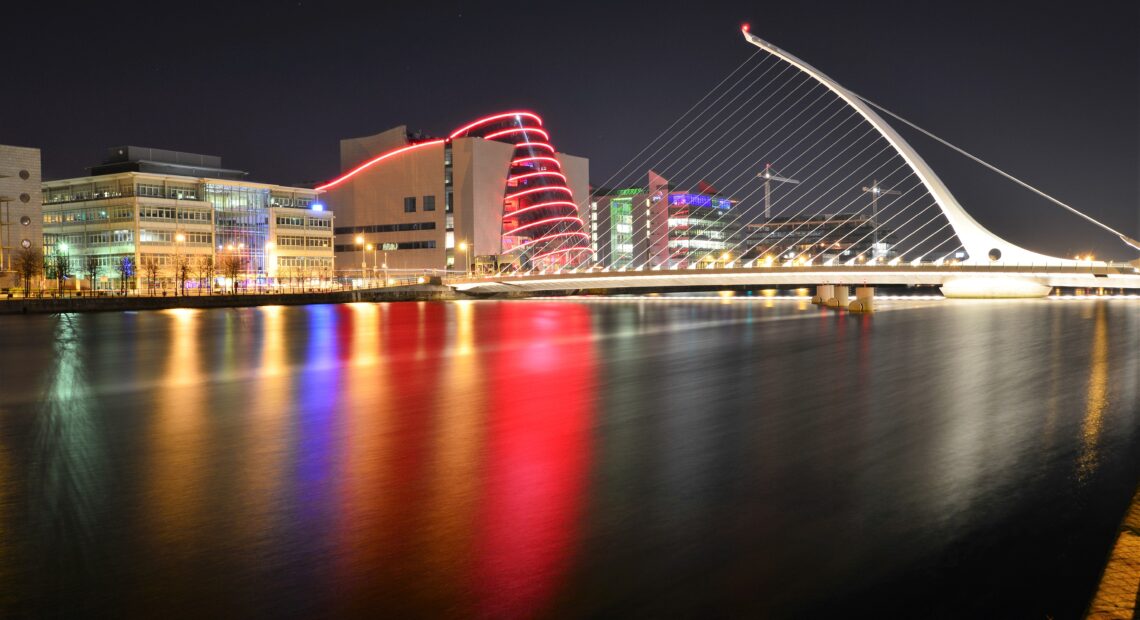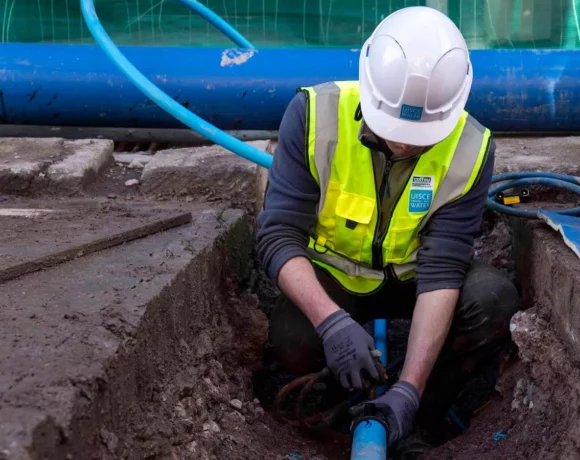Environmental, Social and Governance (ESG) matters alongside digitalisation are essential to continue attracting US investment in the regions of Ireland, according to Lorraine Sammon, Audit Partner, KPMG.
The Irish-US relationship remains strong, which is more important today than ever. American Chamber of Commerce Ireland (AmCham) figures show that US multinationals invest, on average, €28 billion every year in the domestic Irish economy.
As of last November, 342,000 people were directly or indirectly employed here by US multinationals, with approximately one-fifth of all private sector employment here directly or indirectly attributable to Foreign Direct Investment (FDI). So, ensuring we remain competitive and attractive to FDI investment is vital to regional growth.
With competition for investment intensifying and global economic changes a constant factor, it’s essential Ireland not only maintains but strengthens its appeal to US investors. The benefits of this investment should be felt across Ireland, with a particular focus on our regional areas. This point is emphasised by the IDA Strategy which includes a target of 400 regional investments for the period to 2024, representing 50% of its total investment targets.
Targeted regional support is essential with recent flows of US and wider FDI investment in Irish regional development being impactful. For example, in Cork last year, Apple announced further expansion, Merck revealed plans to invest €440 million in the region and Janssen announced a €150 million investment at Ringaskiddy Analog Devices and J&J Vision each announced a €100 million investment in Limerick. In addition, Medtronic is expanding in Galway, and Horizon Therapeutics plc is expanding in Waterford.
Adapt and Respond
Remarkably, we have weathered many significant challenges, continuing to deliver for FDI organisations, deepening our relationships and attracting new businesses to invest in Ireland. This success is a testament to our talent, business environment, resilience, and adaptability. Despite companies being tested by significant challenges in quick succession – a global pandemic, inflationary pressures and geopolitical tensions – Ireland’s economy was the fastest-growing in Europe in GDP terms last year.
Of course, there are (and always have been) global challenges to be navigated. Companies are grappling with global economic headwinds, a reassessment of the concept of globalisation, rising energy costs and inflation, climate change and competition for talent.
Ensuring Our Competitiveness
Our flexibility to react to the needs of FDI organisations has set us apart. For Ireland to thrive and for our regions to develop, we must build an environment that enables us to continue to enhance our skills and competencies in ESG and digitalisation. How we respond to these matters will influence FDI investment in Ireland in the future.
The Government’s White Paper on Enterprise 2022-2030 correctly identifies decarbonisation and digitalisation as two key pillars of our future policy direction to ensure enterprises adapt to the evolving global business environment. KPMG believe it is important organisations go beyond decarbonisation focusing more broadly on ESG. ESG is changing how we work, shop, communicate, travel, and educate ourselves. It is a pervasive and multi-faceted challenge.
According to the 2022 KPMG Irish CEO Outlook, 76% of Irish CEOs expect to see more stakeholder scrutiny of ESG progress and changing regulations and other pressing global economic matters are CEOs’ biggest challenges in delivering their ESG strategies. While these challenges exist, experts in the ESG space also point to the opportunity to address the challenge through innovation. This focus on innovation unlocks a whole host of opportunities for business – be that established companies or new business ventures.
Existing challenges aside, many multinationals are making strides in their ESG action plans. We see them striving to improve their own organisations and demanding more from the companies that they work with. This will drive behaviours and presents a significant opportunity for Irish companies that can react quickly. In addition, the opportunities for Irish companies that can progress their ESG agendas will have the bonus of being a significant point of differentiation when attracting talent.
Supply Chains
We are also witnessing a convergence between ESG and digitalisation. For example,76% of Irish CEOs reported digital and ESG strategies are inextricably linked. This has a profound impact on supply chains, with digital technologies supporting organisations, who are increasingly accountable to stakeholders, to report effectively on the various elements of their supply chains.
Digital Strategy
Competitiveness, productivity and increasingly sustainability are being shaped by digital technologies. Almost 80% of CEOs report they have an aggressive digital investment strategy to stay ahead of their competition. These digital tools are vital in the pursuit of sustainability, allowing companies to allocate resources effectively and operate more efficiently and securely. The challenges associated with securely digitising an organisation are significant, but not embracing digital technologies is likely to come at a cost of growth, expansion and relevance.
In Summary
ESG and digitalisation have become intertwined. Developing our ESG, digitalisation capabilities, skills and technologies can only strengthen our strong links with American businesses allowing Irish and US trade relations to flourish for the benefit of both economies, as so many generations on different sides of the Atlantic have successfully done in the past.
Source: KPMG Ireland













